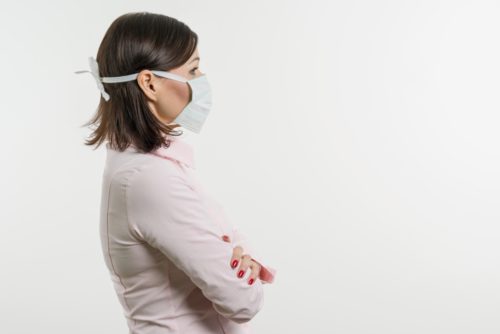Some people are currently worried about the coronavirus due to its ability to spread quickly. The fact that, at this time, there is no vaccine for this virus also has people nervous about how widespread it may become. While there isn’t a vaccination for the coronavirus, there are steps you can take to prevent its spread.
By performing everyday preventive actions, you may limit your exposure to the virus and lower your chances of contracting it. Paying attention to your behaviors and the behaviors of your coworkers is crucial while dealing with the coronavirus.
If you work in a conventional public setting, you spend a lot of your time in the workplace and you’re surrounded by coworkers that you work closely with. By knowing how to protect yourself and your coworkers from the spread of the virus, you can prevent it from disrupting your place of employment and your health.
Table of Contents
Avoid Close Contact With People Who Are Sick
When your coworkers are sick, ideally they will stay home from work to avoid exposing you and other workers to their germs. However, some ambitious employees make poor decisions to come to work anyway, even if they’re not feeling well. While this may be construed as a dedication to the job, it actually puts you and your other coworkers in harm’s way.
If you’re encountering sick employees in the office, ask your supervisor or human resources department to request that workers stay home when they’re sick. Your employer may also find it necessary to review sick leave policies so employees better understand the support they have if they stay home from work when they don’t feel well.
To prevent the spread of the coronavirus, employers should also consider educating their employees on how to stay protected in public places. By reiterating the importance of avoiding handrails and washing their hands frequently, employers may help their workers stay safe from the coronavirus when traveling or running errands for work.
As an employee, you can do your part by encouraging your coworkers to stay home if they feel sick. If your employer doesn’t already have a remote work option in place, encourage your supervisor to implement a plan that allows employees to work from home.
Encourage Respiratory Etiquette
Following proper respiratory etiquette may also keep you and your coworkers safe from the spread of the coronavirus. Whether you or your coworkers feel ill or not, it’s important to properly guard each other from coughs and sneezes as they occur to prevent the spread of germs.
If you cough or sneeze, cover your mouth and nose with a tissue to prevent droplets from reaching your coworkers or surrounding surfaces. If a tissue isn’t available, cough or sneeze into your upper sleeve by bringing your arm up to your face. This prevents the droplets and potential germs from getting on your hands, which you use to touch other surfaces.
If you have sneezed into a tissue, piece of paper, or another item, dispose of it in the trash immediately. If you leave the item on your desk or in a public place, you expose your coworkers to the contaminants that are still present and easily spreadable.
While you may be practicing proper respiratory etiquette, it’s also important that all other workers are careful about sneezing and coughing. If you’ve noticed coworkers who aren’t following procedure properly, consult with your supervisor. Your employer may need to hold a safety meeting to discuss how to properly handle sneezing and coughing to prevent the spread of germs in the workplace.
Practice Hand Hygiene
Keeping your hands clean is one of the most effective ways to prevent the spread of the coronavirus and other harmful germs. You use your hands to touch surfaces that have been touched by other people, which can easily spread germs and bacteria to other surfaces you continually touch or to your coworkers.
Wash your hands frequently throughout the day, especially after you’ve used the bathroom, before and after you eat, or if you’ve spent time in public places. To properly wash your hands, follow these steps:
- Wet your hands under the faucet.
- Use antibacterial soap and lather it on your hands by rubbing them together, including your nails and fingers.
- Continue lathering and scrubbing for at least 20 seconds.
- Rinse your hands under the running water to eliminate all the soap.
- Dry your hands with a clean towel or allow them to air dry.
Even if you think your hands are clean, avoid touching your nose, mouth, and eyes. You may have picked up germs on your hands that can contaminate your body through these areas.
While face masks may seem like a way to prevent the spread of the coronavirus, the Centers for Disease Control and Prevention (CDC) doesn’t recommend that people who aren’t sick wear face masks.
Perform Routine Environmental Cleaning
In addition to keeping yourself clean, it’s also important to ensure your work environment is free of germs that could potentially spread the coronavirus. Wipe down frequently touched items and surfaces on your desk, such as your mouse, keyboard, and phone, with disinfecting cleaner. Germs can remain alive on surfaces for several hours and by regularly cleaning your office space, you’ll ensure these germs are removed quickly.
Go See a Doctor
If you’re not feeling well, it’s important to go see a healthcare professional immediately. If it’s suspected that you’ve contracted the coronavirus, the healthcare professional must complete risk assessments enforced by the CDC, which include active monitoring and observation.
Since you may not be able to return to work until you’re cleared from a coronavirus diagnosis, it’s important to inform your employer about your situation. You may be able to use paid sick leave or work from home until you’re cleared.
Plan Ahead
Not only does the coronavirus affect the economy and investments, it may also negatively impact your personal finances. If you’re forced to take off time from work that’s unpaid, you may face financial burdens and it can be hard to stick to your budget. Prepare your household for the potential of earning less income by creating an emergency fund and cutting unnecessary expenses.
Some companies, such as Google, offer paid sick leave as a part of their benefits package. If your employer doesn’t offer these benefits or you’ve already used your paid leave, it’s important to be financially prepared. You may need to find remote work or consider additional income sources, such as a loan, to get you through this period.
By implementing these important steps, you’ll help increase your workplace’s protection against the potential of the virus disrupting employment and employee health.
Image Source: https://depositphotos.com/





